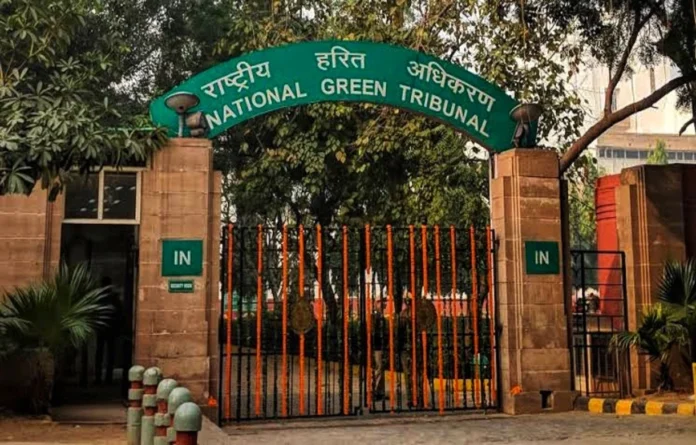The National Green Tribunal (NGT) has taken suo motu cognizance of a study conducted by Indian Institute of Technology, Delhi revealing severe heavy metal pollution in East Delhi’s air, raising significant health concerns.
The petition is registered suo-motu on the basis of the news item dated 29.09.2024.
As per the news item, the study detected alarming levels of heavy metals such as lead, cadmium, and nickel in the air. In East Delhi district, chromium, copper, zinc, molybdenum and lead were the major heavy metals found in PM2.5. These metals are known to have severe health impacts, including respiratory and cardiovascular diseases.
The news item states that the study formulated the heavy metal exposure index (HEI) in East Delhi (part of a mega city), Jaisalmer (desert), Ludhiana (industrial city), Visakhapatnam (coastal), Panchkula and Patiala. Panchkula was chosen as it is a particulate matter attainment city as the air quality is usually better throughout the year while Patiala was studied as widespread stubble burning takes place here. The study found that HEI, which is toxicity load, was the highest in East Delhi before the Covid-19 lockdown. However, after the lockdown, it was highest in Ludhiana, followed by East Delhi. A higher HEI value implies a higher level of heavy metal exposure owing to PM2.5 in ambient air. The study found the highest value of HEI for Ludhiana (21.78), followed by East Delhi (21.45) and Panchkula (10.74). The value was above the median value of 8 for these three districts.
The news item highlights that the primary sources of these pollutants include industrial emissions, vehicular exhaust, and construction activities. Furthermore, the presence of heavy metals poses serious health risks, particularly to vulnerable populations such as children and the elderly. Long-term exposure can lead to respiratory issues, neurological disorders, and other serious health problems.
Furthermore, it is asserted that pollution is not just an environmental issue; it poses significant risks to public health, affecting drinking water supplies and increasing the risk of waterborne diseases.
The news item raises substantial issues relating to compliance with provisions of the Air (Prevention and Control of Pollution) Act, 1981 and Environment (Protection) Act, 1986.
“Power of the Tribunal to take up the matter in suo-motu exercise of power has been recognized by the Hon’ble Supreme Court in the matter of “Municipal Corporation of Greater Mumbai vs. Ankita Sinha & Ors.” reported in 2021 SCC Online SC 897.”
Hence, the Principal Bench of Justice Prakash Shrivastava, Justice Arun Kumar Tyagi and Expert Member Dr. A. Senthil Vel impleaded the following as respondents in the matter:
1. Delhi Pollution Control Committee (DPCC), Through its Member Secretary.
2. Punjab Pollution Control Board (PPCB), Through its Member Secretary.
3. Central Pollution Control Board (CPCB), Through its Member Secretary.
4. Ministry of Environment, Forest and Climate Change (MoEF).
5. District Magistrate (DM), East Delhi.
6. District Magistrate (DM), Ludhiana.
The Bench issued notice to the Respondents and listed the matter on 06.02.2025.


